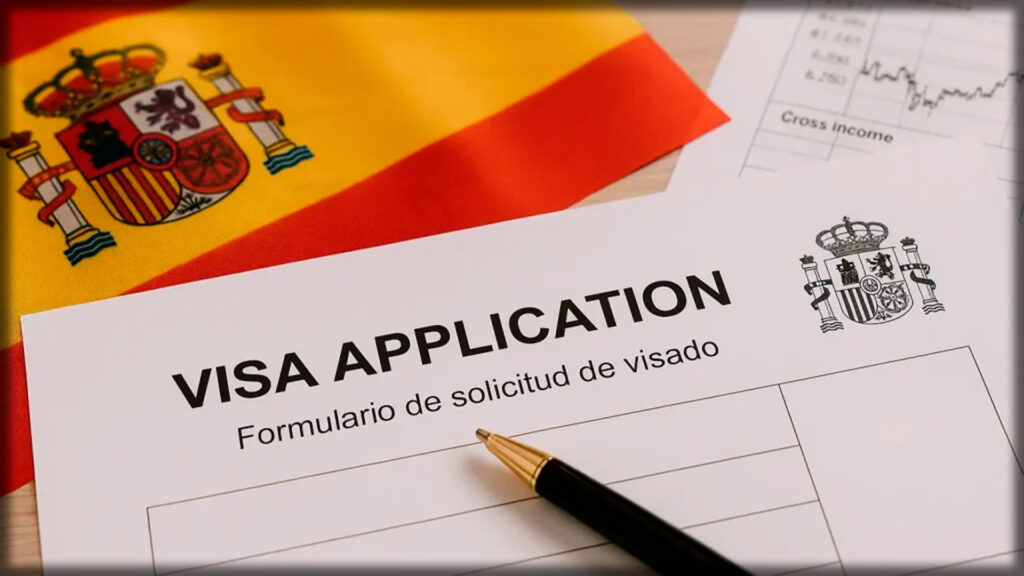How to Work in Spain as a Foreigner in 2025
Spain stands out as one of the most attractive destinations for those seeking to combine job opportunities with quality of life. Traditional sectors—such as agriculture, tourism, and hospitality—continue to generate thousands of jobs, while technology, healthcare, and renewable energy are consolidating as areas of high demand.
Working in Spain in 2025 means having access to a diverse labor market, competitive salaries within the European context, a high-quality public healthcare system, and a cultural environment that makes integration easier for newcomers.
The Job Market in 2025
- Spain has managed to reduce overall unemployment, but shortages remain in key sectors.
- More than 15% of the workforce is made up of immigrants.
- Regions such as Madrid, Catalonia, Andalusia, and Valencia lead in foreign worker recruitment.
Types of Work Visas and Permits Available
As in other European countries, Spain requires a valid visa or work permit to be employed legally. The main categories include:
- Employment (Cuenta Ajena): When a company hires you directly under a formal contract.
- Self-Employment (Cuenta Propia / Autónomo): For entrepreneurs, freelancers, or those starting their own business.
- Seasonal Work Permits: Aimed at short-term agricultural or tourism campaigns.
- Highly Qualified Professionals / EU Blue Card: For technical and specialized profiles.
- Arraigo (Social or Labor Roots): Regularization pathways for those who have already been living in Spain.
👉 To dive deeper, check out: [Work Visa in Spain: Complete Guide and Requirements]

General Requirements to Work in Spain
Although the details depend on the type of visa or permit, there are a series of common requirements for most immigrants:
- Valid job offer from a company registered in Spain.
- Employment contract that complies with the collective agreement and the minimum wage (€1,134 in 2025).
- Personal documents: valid passport, criminal record certificate, and in some cases, a medical certificate.
- Basic level of Spanish: not always mandatory, but highly recommended for workplace integration.
- Degree recognition (homologación): necessary in regulated professions such as medicine, teaching, or engineering.
Step-by-Step Process to Get a Job
- Define your profile: Are you looking for qualified employment, basic work, or seasonal jobs?
- Check your documentation: NIE, visa, or regularization pathways such as arraigo.
- Prepare your CV in Spanish format: maximum two pages, with a photo and a short cover letter.
- Search in high-demand sectors: healthcare, hospitality, agriculture, logistics, technology.
- Apply through official portals and recognized companies: InfoJobs, SEPE, LinkedIn, or regional job boards.
- Attend interviews: in person or online, showing immediate availability and willingness to integrate.
- Sign the contract and register with Social Security: an essential step to work legally.
Benefits of Working Legally in Spain
- Access to public healthcare and Social Security.
- Guaranteed wages according to the collective agreement.
- Possibility of renewing permits and applying for long-term residence.
- Protection against labor exploitation.
- Family reunification in several types of visas.

Related Articles to Explore Further
If you want to take your job search in Spain one step further, here are other articles to help you:
- 👉 Discover which are [the most in-demand jobs in Spain for immigrants], perfect for aligning your profile.
- 👉 Learn in detail how to get your visa in [Work Visa in Spain: Complete Guide and Requirements], where we explain each category.
- 👉 Find out the [best cities in Spain to work as a foreigner], based on your profession and expectations.
- 👉 If you’re looking for something quick, check out [seasonal jobs in Spain], ideal for starting to gain experience.
- 👉 And avoid pitfalls with this guide on [common mistakes when looking for work in Spain as a foreigner].
Each of these topics is designed to give you a complete picture and connect directly with this main guide.
Common Challenges Faced by Foreigners
1. Bureaucratic Barriers
Administrative procedures in Spain can be long and confusing. From recognizing foreign degrees to obtaining the NIE (Foreigner Identification Number) or scheduling an immigration office appointment, many immigrants feel like bureaucracy is a wall.
👉 Tip: Start your paperwork as early as possible, always keep copies of every document, and seek guidance from immigrant associations or legal advisors.
2. Language and Cultural Adaptation
Even though Spanish is one of the most widely spoken languages in the world, arriving without at least a basic level greatly limits your chances of securing stable employment. Additionally, adapting to Spain’s workplace culture (punctuality, formality in interviews, emphasis on experience) can be an initial shock.
👉 Tip: Invest in Spanish classes, even free ones offered by NGOs or local town halls. Language skills open doors that a résumé alone cannot.
3. Competition in Saturated Sectors
While hospitality and agriculture have high demand, they also attract large numbers of immigrants. This often leads some to accept exploitative conditions out of necessity.
👉 Tip: Learn about the national minimum wage (€1,134 in 2025) and collective agreements. Your labor rights are protected by law.
4. Recognition of Professional Experience
Not all degrees or foreign work experience are valued equally in Spain. Professions such as medicine, engineering, or teaching require official recognition.
👉 Tip: Check which professions are regulated and begin the recognition (homologación) process as early as possible.
Practical Tips to Improve Your Chances
- Adapt your CV to Spanish standards: 2 pages max, concise, and with a photo.
- Expand your job search beyond Madrid and Barcelona: cities like Valencia, Málaga, or Bilbao offer strong job prospects.
- Connect with immigrant communities: they can help you find opportunities and provide practical advice.
- Be flexible at first: a seasonal or entry-level job can be the stepping stone to better opportunities.
Working in Spain in 2025 is a realistic objective for thousands of immigrants. The country needs labor in key sectors and offers the chance to grow, integrate, and eventually access long-term residency.
The journey isn’t obstacle-free: bureaucracy, competition, and language can be major challenges. But with clear information, patience, and a well-defined strategy, it is possible to turn that dream into reality.
The key is not to avoid difficulties, but to prepare to overcome them. Spain doesn’t just offer a job — it offers the chance to build a stable future for you and your family.